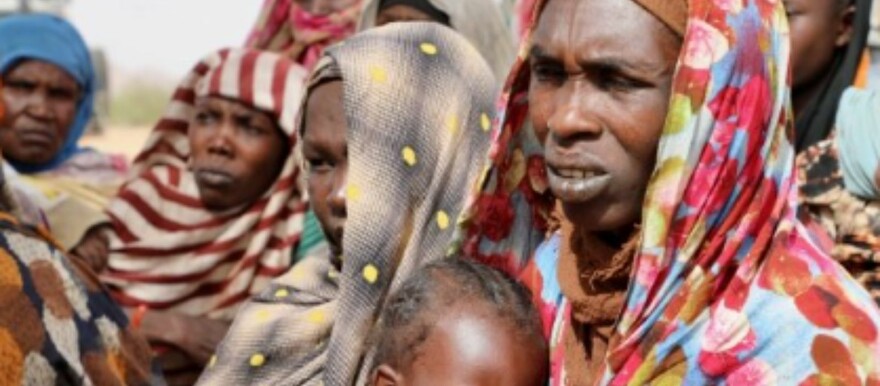Refugees from the Darfur region who fled to the Michi Refugee Camp in eastern Chad have complained about insecurity and harsh living conditions.
They also said food aid provided by the United Nations was partially suspended for the last two months.
Last week, the camp was also battered by a rainstorm which led to the destruction of 45 homes and the injury of 15 individuals, some of whom were transferred to Adre Hospital for treatment, according to local leaders.
Human rights activist Safiya Ishaq Adam Ali, a resident of Michi Refugee Camp, told Radio Tamazuj Tuesday that the refugees are facing appalling conditions including lack of food and deteriorating security which has forced women to leave the camp to search for work in the city of Adre, 60 kilometers away.
She explained that the camp has one health center which lacks medicine and health personnel and that there are outbreaks of diarrhea, cholera, and malaria.
“The death rate among refugees per day averages between 6 and 7 individuals as a result of the lack of food, supplies, and water pollution,” Ishaq stated.
Meanwhile, Asaad Arbab Mohammed, a member of the Coordination Committee of the Displaced Persons and Refugees in West Darfur, said that the scarcity of food in the camp has led to a rise in cases of malnutrition among the elderly, children, and women.
“2,000 families are living outside and sleeping in the heat, cold, and rain, and waiting for organizations to intervene and provide them with aid,” Arbab said.
Another Sudanese refugee, Sahal Al-Zein Hussein, said there is no source of water in the camp which forces them to use the water from the streams which is polluted and not suitable for human consumption due to open defecation because there are no toilets.
A female refugee lamented that the poor security situation is characterized by an increase in cases of armed looting and random shooting inside the camp which is a major threat to women.
“A girl was raped and two were kidnapped when they went to collect firewood last week and until now they have not been found,” she said, “The situation is frightening and we are being exploited when we go out to relieve ourselves in the open.”
She called for urgent intervention by the international community to look into the violations against women as a result of the mass massacres in El Geneina in the period from April 24 to June 12.
The number of refugees fleeing to Chad since the outbreak of the war between the army and the Rapid Support Forces has risen to 217,839 according to the Displacement Tracking Matrix Report of the International Organization for Migration issued in July.
El Geneina is 20 kilometers away from the Sudanese-Chadian border. When refugees arrived in the town of Adre in eastern Chad, some of them were moved to permanent camps but many refugees are still stationed only kilometers away from the troubled border.




